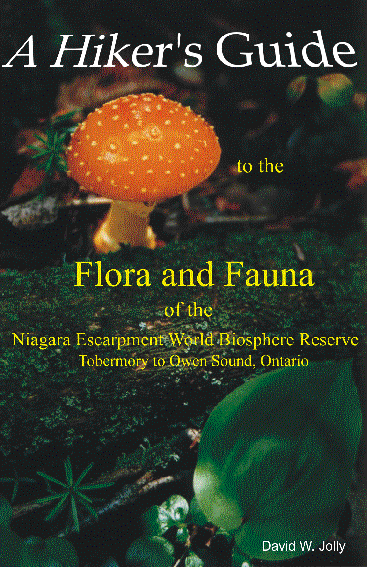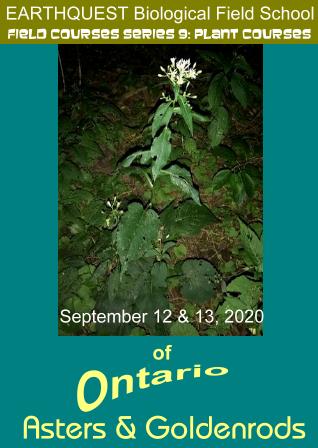
|
In order to qualify for internships and other job opportunities through the Biological Field School and become full time students must enroll in a minimum of 3 courses. This will allow an instructor to work with you to improve your resume, cover letter, provide job finding strategies. It also places you on the list to receive weekly job postings so that you may start applying to suitable jobs immediately. Please choose from the following list of courses. If you wish to discuss courses with an instructor please contact email us;
Reasons/Rationale for taking my field botany courses
All of my vascular plant field identification courses go well beyond any college/university level courses and meet or surpass expectations of employers in the environmental industry. I am aware of the curriculum offered at some of the top colleges/universities in Canada and how in depth they go into their plant courses. I have also had numerous grads from these institutions come to me after graduating (as well as environmental consultants) to take my courses and all agree that they learn how to field identify to vascular plant family, genus and species much quicker and more accurately than they did from any college/university courses. As a result, employers are sending me their staff to gain intensive hands-on practical field skills in a short period of time (over a couple of days). Moreover, I integrate the Ontario Wetland Evaluation System (OWES) and Ecological Land Classification (ELC) methodology into my plant courses in such a way that you learn where to look for plants (eg. Species at Risk - SARs), how to look - based on visual characteristics exhibited by the plants (what you see is what you get), and when to look - based on seasonality, habitat, ecosite, soils, hydrology, geology and distribution (the key parameters of the OWES and ELC methodology). Additionally, I focus more on what the college/university courses miss - herbaceous vascular plants found in the herb and ground layers (ie. wildflowers, some grasses, sedges and rushes if taking the Level 1 FBT terrestrial plant courses, some ferns and club mosses). My Level 1 & 2 terrestrial plant courses cover vascular plants of the 5 forest regions of Ontario and build a strong working knowledge of the plants of these ecozones. This means that I will develop your visual/practical field skills so that you won't need to rely on reference/resource materials such as field guides to field identify your plants. Trees and shrubs are also covered in my Level 1 and 2 terrestrial plant courses. The Level 3 courses are more specialized - focusing almost exclusively on species level field identification techniques (ie. hairy vs. non-hairy stem, pinnately vs. palmately veined, coarsely toothed vs. doubly serrated leaf margins, etc.). The Level 3 courses also go into hybrids and sub-species level field diagnostics, which is not taught in any field botany courses, that I'm aware of, anywhere. I would strongly recommend taking my plant courses to compliment any OWES or ELC courses because field botany is not emphasized when taking these courses, yet field botany is a major component of accurately and correctly delineating polygons or wetlands and classifying ecosites. I have found that people who don't know their plants well enough make numerous technical errors while performing OWES or ELC methodology. These courses are an excellent choice for those wishing to enhance their field knowledge and skills pertaining to restoration planting plans, mitigation and environmental effects plans, sediment and erosion control. If you need to talk to some grads from my plants courses you may contact me. The following field botany courses are offered during the 2023 field season;
For more details on our 6 field botany courses please go to the links below the Paypal button:
Field Botany Mentorship Program
To pay the August 2023 rent via Paypal please go to this link:
Summary: This intensive field course covers up to 20 families of vascular plants typically found within the 5 forest regions of Ontario.
Early Bird Registration Level 1 FBT terrestrial & wetland plant course Student discounted Level 2 FBT terrestrial plant course Summary: This intensive field course covers 39 - 52 genera of vascular plants within the 20 families of the Level 1 FBT plant course that are typically found within the 5 forest regions of Ontario.
Early Bird Registration Level 2 FBT terrestrial plant course
Level 3 Ferns of Ontario course Summary: This intensive field course covers 30 species of ferns typically found within the 5 forest regions of Ontario.
Level 3 Asters and Goldenrods of Ontario course Summary: This intensive field course covers 13 out of 19 species of goldenrods and 13 out of 18 species of asters (including several Species at Risk) found within the 5 forest regions of Ontario. Discounted Level 3 Asters and Goldenrods of Ontario course (taking 3 or more courses, or volunteers of the Niagara Escarpment World Biosphere Reserve Project)
Level 3 Grass, sedge, rush course Summary: This intensive field course covers 28 genera and 58 species of grasses, sedges and rushes (including Species at Risk)found within wetlands (i.e., bogs, fens, deciduous, mixed and coniferous swamps and marshes) the 5 forest regions of Ontario.
Level 3 FBT SAR & Rare plants of Ontario course Summary: This intensive field course covers 18 - 25 Species at Risk plants found within the 5 forest regions of Ontario.
Student discounted
Early Bird Registration Level 3 FBT SAR & Rare plants of Ontario course
For a complete description of the core International FBT Program courses, specialty and correspondence courses please download
$27.50 CAD + shipping and handling (no shipping if downloaded from website) 
Photo: Dave Jolly for more information please click on;
Once your Bruce hiker's guide is purchased simply download your book from our website. To purchase your copy of this book via Paypal please click on;
D. Jolly, B.Sc.
| ||||||

